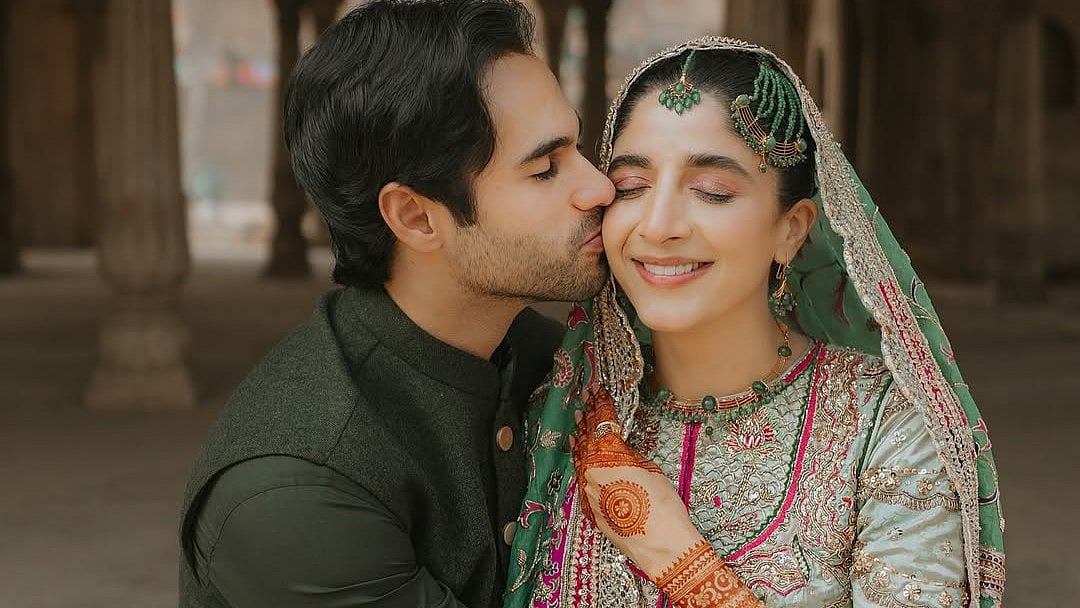Indian fashion influencer Sufi Motiwala, known for his fashion commentary on celebrity outfits, recently sparked controversy over his critique of Pakistani actor Mawra Hocane’s wedding look. Mawra, who tied the knot with actor Ameer Gilani, was criticized by Sufi for her lehenga choice.
In a video, Sufi called the fabric of Mawra’s lehenga ‘tacky’ and ‘questionable.’ “This is what happens when you live in a world without Sabyasachi and Manish Malhotra. The fabric choice is takiana,” he stated in his clip. His comments quickly caught the attention of fashion enthusiasts and industry insiders.
Pakistani stylist responds to Sufi
Pakistani stylist Zahra Sarfraz did not hold back in her response, calling Sufi ‘tacky’ for his limited appreciation of fashion. “What I find truly tack is living outside the world of originality, sticking to two to three designers, making yourself feel better with that one label,” she remarked in her counter-video.
Zahra also took the opportunity to educate Sufi and his followers on the sentimental value behind Mawra’s wedding attire. She explained that the Sanam Teri Kasam actor had built her entire bridal look around her mother-in-law’s dupatta. “Sufi, what I don’t understand is we extend so much respect, love, and support your way. Why is it so difficult to extend the same respect towards us? You can’t comprehend the world of sentimental value… It is so beautiful that Mawra took her mother-in-law’s shaadi ka dupatta and built the entire outfit around it. I guess that’s something you can do when you have a personality,” she added.
The meaning behind Mawra’s wedding look
Zahra further elaborated on the historical and emotional significance of Mawra’s bridal accessories. “Humare logo ki ek or interesting baat batati hun, hume chhote set mein bhi exactly usi tarah sans aati hai jiss tarah bade set mein aati hai (I will tell you another interesting fact about us, we can breathe the same way in a small jewellery set as we breathe in a huge set). For those who don’t know, this set was owned by Mawra’s dadi saas, and she wore this and celebrated it in the most beautiful way possible,” Zahra explained.
How did the social media react?
Sufi’s remarks did not sit well with netizens, who were quick to call him out for his lack of understanding of subcontinental fashion history. One user wrote, “Boy, have you not studied the fashion history of the subcontinent? Why won’t you recognize a vintage look?” Another added, “I love the bashing guys! keep em coming. I don’t even understand why do people even like to listen to critiques from HIM?!”
The internet overwhelmingly sided with Mawra and Zahra, with one comment reading, “This was unnecessary. Look beyond the world of Sabya and Manish.” As the conversation around originality and sentimentality in fashion grows, this debate serves as a reminder that fashion is not just about luxury labels—it is also about history, emotion, and personal expression.
